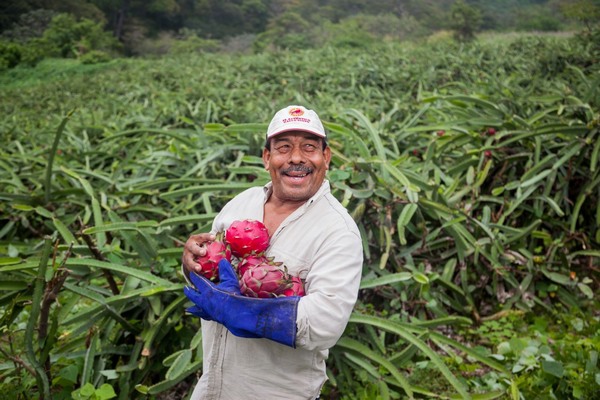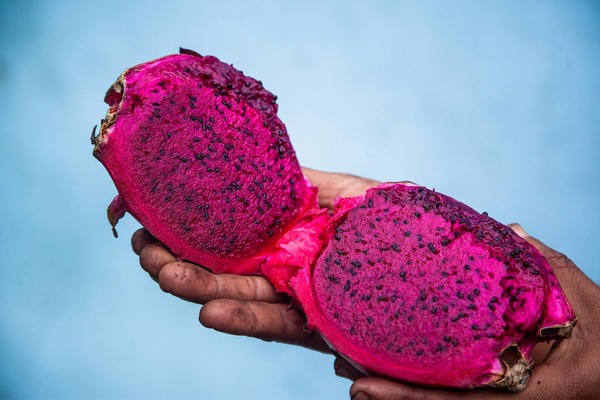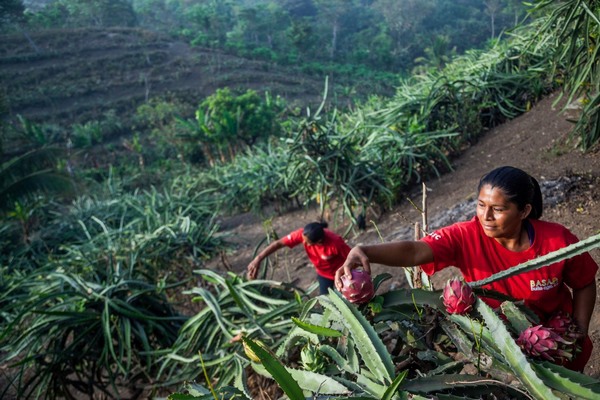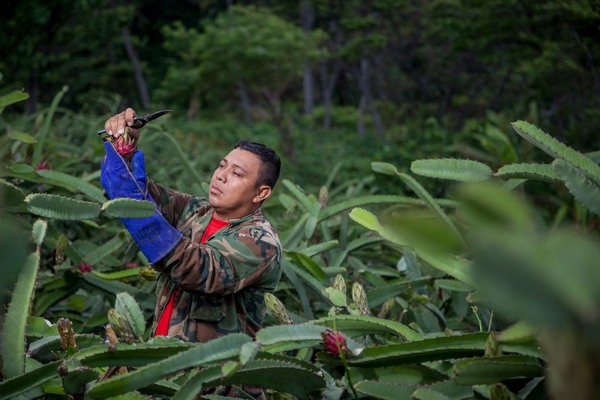Thanks to its vibrant colour, fresh flavour and nutritional benefits, pitaya, or ‘dragon fruit’, has become a popular ingredient in fruit drinks, smoothies and desserts. Although commonly associated with Asian cuisine, this fruit is native to Central America.
Nicaragua-based agricultural development firm Burke Agro hopes to re-introduce European consumers to certified organic Nicaraguan red pitaya – a variety that offers higher amounts of pigmentation than others as well numerous health benefits. Nicaragua is currently one of the largest growers of organic pitayas in the world. To help local farmers access new markets, Burke Agro, a branch of Sol Organica S.A., recently decided to export three varieties to Europe: Lisa, Rosa and Orejona. Because of the COVID-19 pandemic, these plans were delayed, but Burke Agro is on track to export certified organic and Non-GMO red pitayas to Europe in June 2021.

"The European market is an exciting new challenge for us," says Founder and CEO Will Burke. "Getting the consumer to understand the added value of our fruit compared to Asian varieties takes time. We hope to start by shipping small volumes of 3-4 pallets a week by air freight. In 3-5 years’ time, we would like to partner with supermarkets and retail chains that value our quality and environmental and social impact."
Native to Central America, pitaya was introduced to Asia over a century ago, were it was rebranded as ‘dragon fruit’. Nowadays, this is what European consumers are familiar with, but Burke is keen for the market to re-discover Nicaraguan varieties, which are higher in certain attributes than their Asian counterparts. For example, red pitaya is high in iron, antioxidants, B vitamins and magnesium, and it also has more fibre than the Asian variety, giving it a denser texture.

Burke goes on to explain that it isn’t just this fruit’s nutritional value that sets it apart. "The main difference is the betalain present in red pitaya," he says. "Nicaraguan pitaya is a beautiful and vibrant fuchsia inside and out. It can be used for dyes, and even has the potential to be used in food colouring. A little red pitaya goes a long way. To give smoothies an attractive colour, for example, it takes 75% more Asian pitaya to achieve the same level of pinkness you achieve with red pitaya.’
Burke Agro’ started in 2007, when Burke saw a growing demand among consumers for organic and sustainable products. Research also showed that smallholder farmers in Nicaragua lacked the resources and knowledge they needed to meet this demand. Burke Agro was founded to help bridge the gap. "Our mission is to support micro farmers through technical assistance, organic input and financial literacy. Currently, we help about 1,200 micro farmers transition from conventional to organic farming.’ To help these smallholder farmers access the global market, Burke Agro also sources and sells their certified organic fresh fruit, with a strong focus on red pitaya. ‘Pitaya is a climate-resilient plant. It can withstand droughts very well, so encouraging farmers to focus on this product is a market-based solution to the poverty and migration issues in the area."

As a company, Burke Agro is committed to benefiting people and the planet first. In 2017 it became a certified B Corporation, and they also are Fairtrade, organic and HACCP certified, and working towards GlobalG.A.P. status. "Ethical business practices are part of the company’s DNA and the impact this organic programme has is clear," Burke says. "As farmers learn how to improve their soil health and their yield, their land becomes profitable and their children see the potential."
The interest of future generations is vital, Burke says. "Worldwide, the average farmer is 60 years old, and the next generation is not interested in taking over; they would rather find jobs in the big cities. In 10-15 years, this will be a problem. There will be a huge gap once today’s farmers retire, and the market is increasingly demanding sustainably produced natural products. At Burke Agro, we believe that making long-term investments is the solution to encouraging future generations to see farming as a viable option. At the moment, that means giving smallholder farmers the tools they need, and helping them access European buyers interested in organic fresh fruit with a transparent sourcing story."

Learn more about Burke Agro and other reliable Central American suppliers in the Connecting Central America brochure, or get to know them personally by requesting a virtual B2B meeting through the event page. You can also get in touch or find out more via the Burke Agro website, or its Facebook, Instagram and LinkedIn pages.
Burke Agro is being promoted by the Centre for the Promotion of Imports from developing countries (CBI) within its the Connecting Central America initiative. This initiative is co-financed by the European Union and coordinated by the Secretariat for Central American Economic Integration (SIECA).
For more information:
Will Burke
Burke Agro
Email: wburke@burkeagro.com
www.burkeagro.com
Piet Schotel
Tel: +31 6 53381897
Email: piet@fruitconsultancy.nl
